 Sukhdev Sandhu
Sukhdev Sandhu
From Notting Hill to Brixton: Steve McQueen’s series of films looks back at black British life.
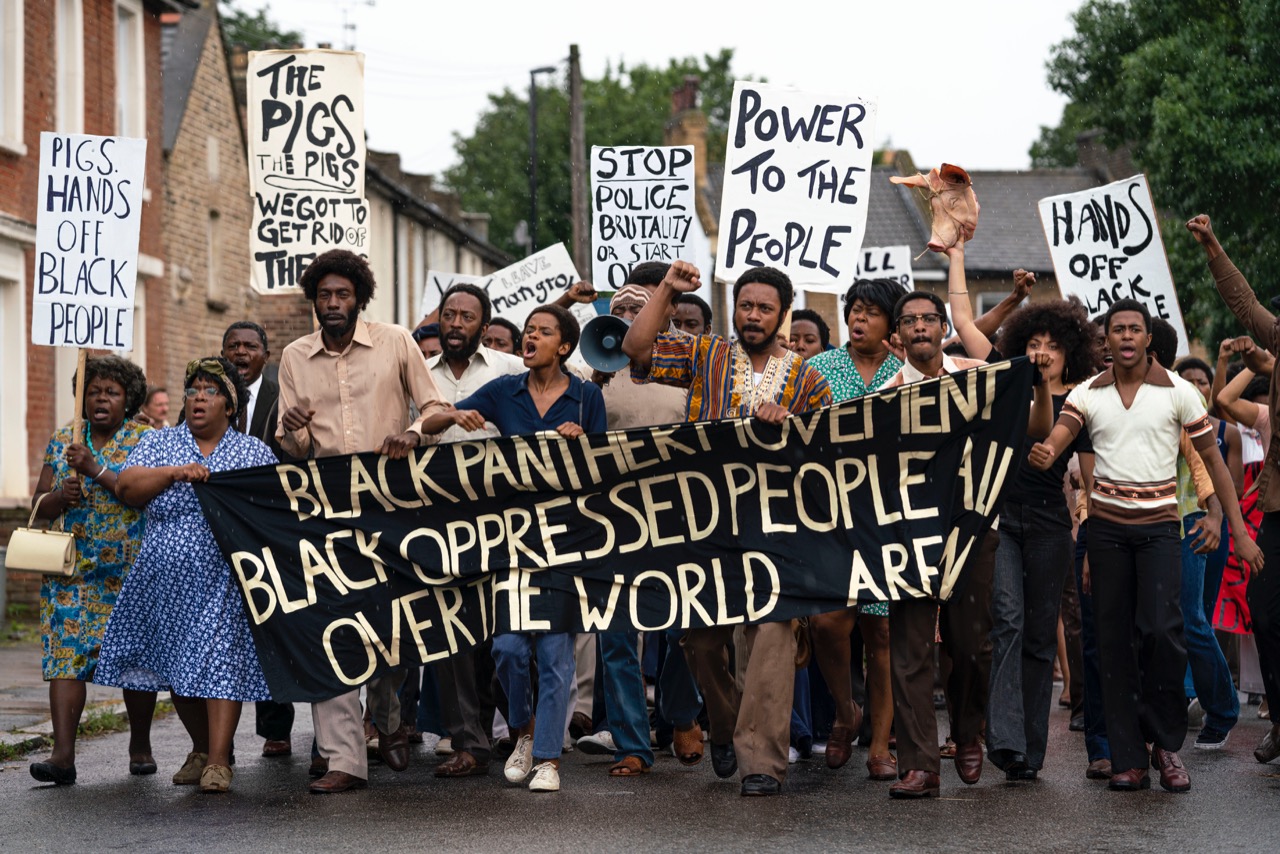
Shaun Parkes as Frank Crichlow (left of center, off-white shirt), Letitia Wright as Altheia Jones-LeCointe (center, dark blue shirt), and Nathaniel Martello-White as Rhodan Gordan (center, right fist raised) in Mangrove. Photo: Des Willie / Amazon Prime Video.
Small Axe, created and directed by Steve McQueen, Amazon Prime
• • •
Steve McQueen recently likened the BBC to the National Health Service. They are, he argued, the only two things that hold Britain together as a community. It’s fitting then that Small Axe—five discrete, feature-length films based on chapters in black British history from the late 1960s to the mid-1980s—premiered on that channel in the UK last month. The series is a triumph of popular modernism, a throwback to event television, to the days of other BBC productions such as The Singing Detective and Our Friends in the North—when dramas with outsize hearts and flaming ambition were shown for free in prime time, civic-mindedly scheduled rather than heaped on the watch-what-you-like digital buffet of streaming services. (In the US, Small Axe is available on one of those streaming services—Amazon Prime—premiering in weekly installments through December 18.)
The series delivers history in the present tense. History as present tension. It covers a period of downturn and distress, after the streets-paved-with-gold dreams of first-generation Caribbean immigrants had fizzled away, after Conservative politician Enoch Powell had delivered an infamous speech in which he mourned the arrival of those immigrants (“We must be mad, literally mad . . . It is like watching a nation busily engaged in heaping up its own funeral pyre”). The portrayal of young black men as muggers, the aggressive use of stop-and-frisk techniques by police, black boys being routinely banished to “educationally subnormal” (ESN) schools: this was a time of troubles.
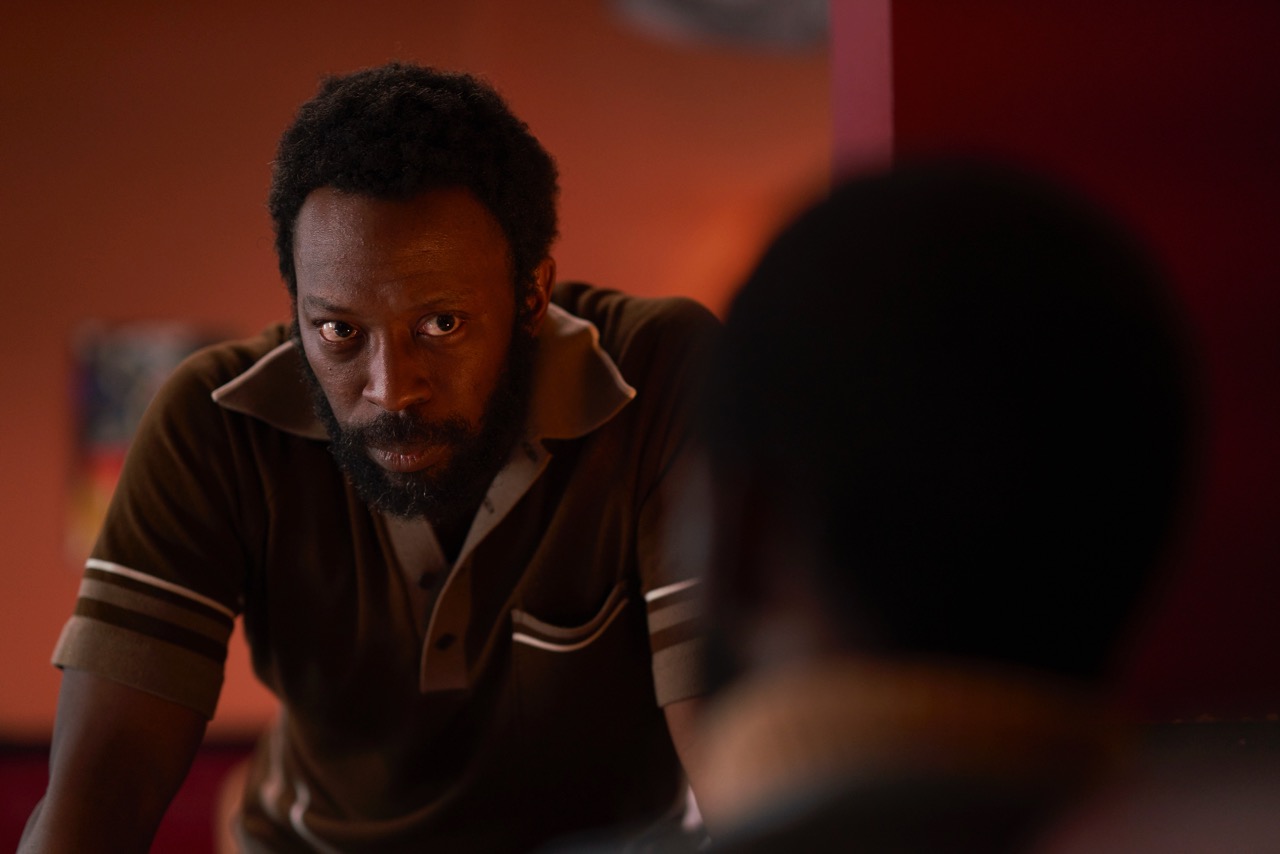
Shaun Parkes as Frank Crichlow in Mangrove. Photo: Des Willie / Amazon Prime Video.
Mangrove, the first in the series, is set in the first years of the 1970s in West London’s Notting Hill—near where McQueen himself grew up. It’s a scruffy manor, with an odor of WW II bomb sites and pre-gentrification hanging heavy in the air. It’s here that Trinidadian Frank Crichlow (played by Shaun Parkes) has made the mistake of opening a popular restaurant. Local police assume it’s a drug den teeming with pimps and prostitutes. They raid it repeatedly, never once finding anything for which they can arrest its owner. But when Crichlow joins a protest against their strongarm tactics, they haul him and others to court on a charge of incitement to riot.
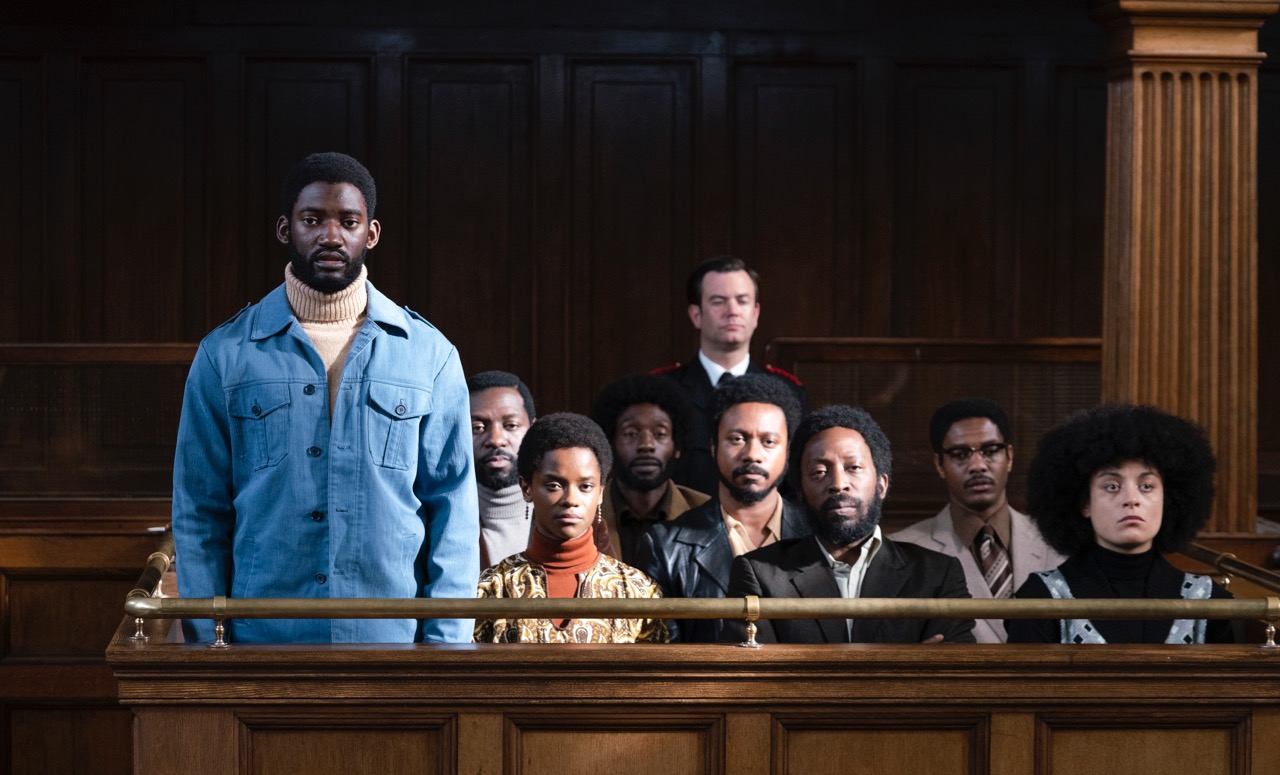
Malachi Kirby as Darcus Howe (left, light blue jacket), Letitia Wright as Altheia Jones-LeCointe (center left, orange top), Shaun Parkes as Frank Crichlow (center right, black jacket), Rochenda Sandall as Barbara Beese (right, black sweater), Richie Campbell as Rothwell Kentish, Gershwyn Eustache Jnr as Eddie LeCointe (second row center), and Nathaniel Martello White as Rhodan Gordon in Mangrove. Photo: Kieran McCarron / Amazon Prime Video.
The Mangrove Nine case lasted fifty-five days. It was a face-off between subalterns and her majesty’s constabulary, a sustained attempt by Britain’s ruling class to eradicate the virus of Black Power coming from across the Atlantic, a vital step toward black British self-determination. Central to its unfolding was Darcus Howe (a glowering Malachi Kirby), who urged Crichlow to be more combative and to call out the systemic racism of the police. The film’s second half becomes a fraught court drama in which it’s not just the verdict that’s uncertain; it’s whether Crichlow, at the bidding of his (white) lawyer, will betray his fellow defendants in order to increase the chances of getting a lighter sentence.
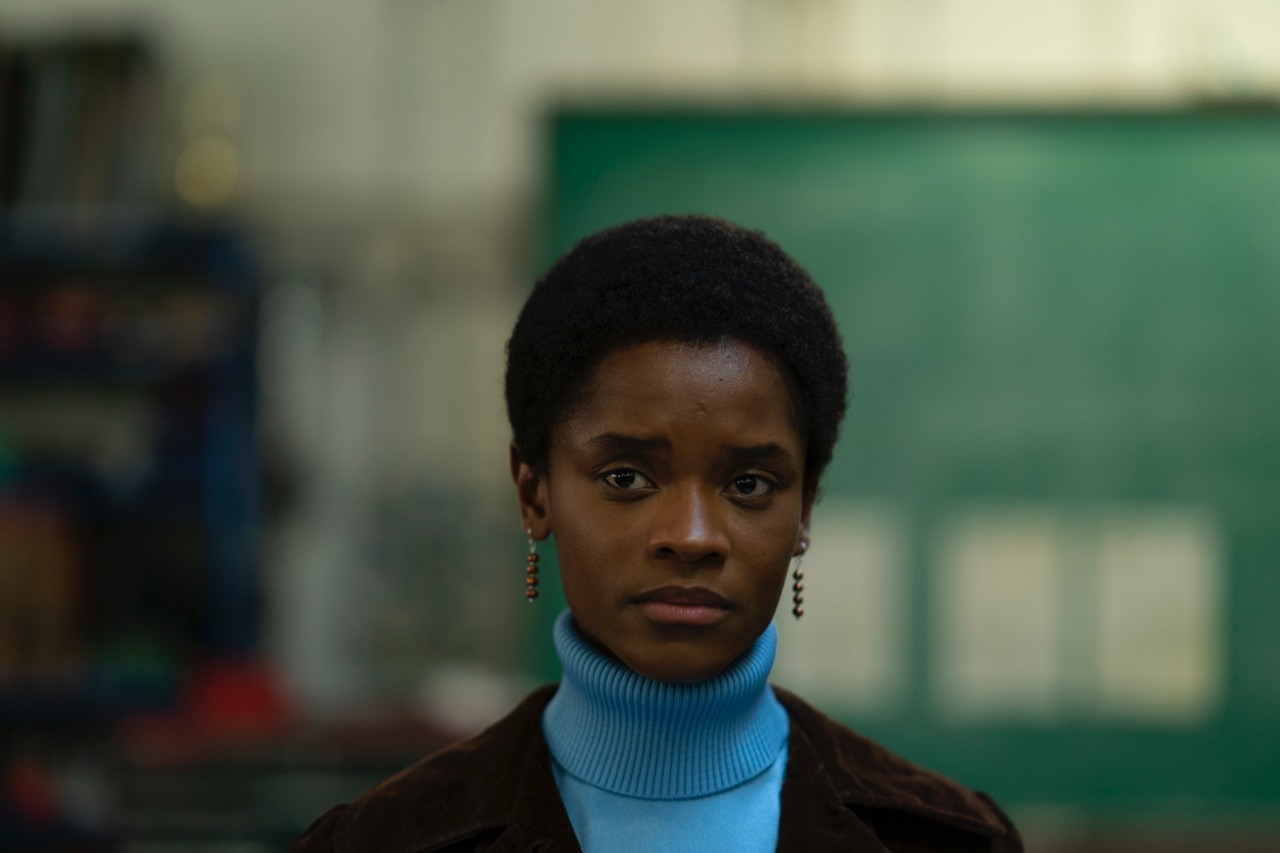
Letitia Wright as Altheia Jones-LeCointe in Mangrove. Photo: Des Willie / Amazon Prime Video.
Not everyone will recognize a poster image of Jamaican revolutionary Paul Bogle that McQueen zooms in on. Nor will they know that he and Mangrove screenwriter Alastair Siddons redress the serious omissions in another treatment of this material—John Ridley’s miniseries Guerilla (2017)—by spotlighting the crucial roles played in the campaign by black women such as Barbara Beese (Rochenda Sandall) and Altheia Jones-LeCointe (Letitia Wright).

Micheal Ward as Franklyn and Amarah-Jae St. Aubyn as Martha in Lovers Rock. Photo: Parisa Taghizedeh / Amazon Prime Video.
Lovers Rock, the boldest Small Axe film, gets its name from a languid, soulful form of reggae particularly popular with women at the end of the 1970s. Its plot, poised between Cinderella and Little Red Riding Hood, is slender: Martha (Amarah-Jae St. Aubyn), the daughter of a God-fearing Jamaican family, sneaks out to a party. During the bash, she falls out with her best friend, happens upon an attempted rape, and has an altercation with a bereaved cousin. She may also have found love.
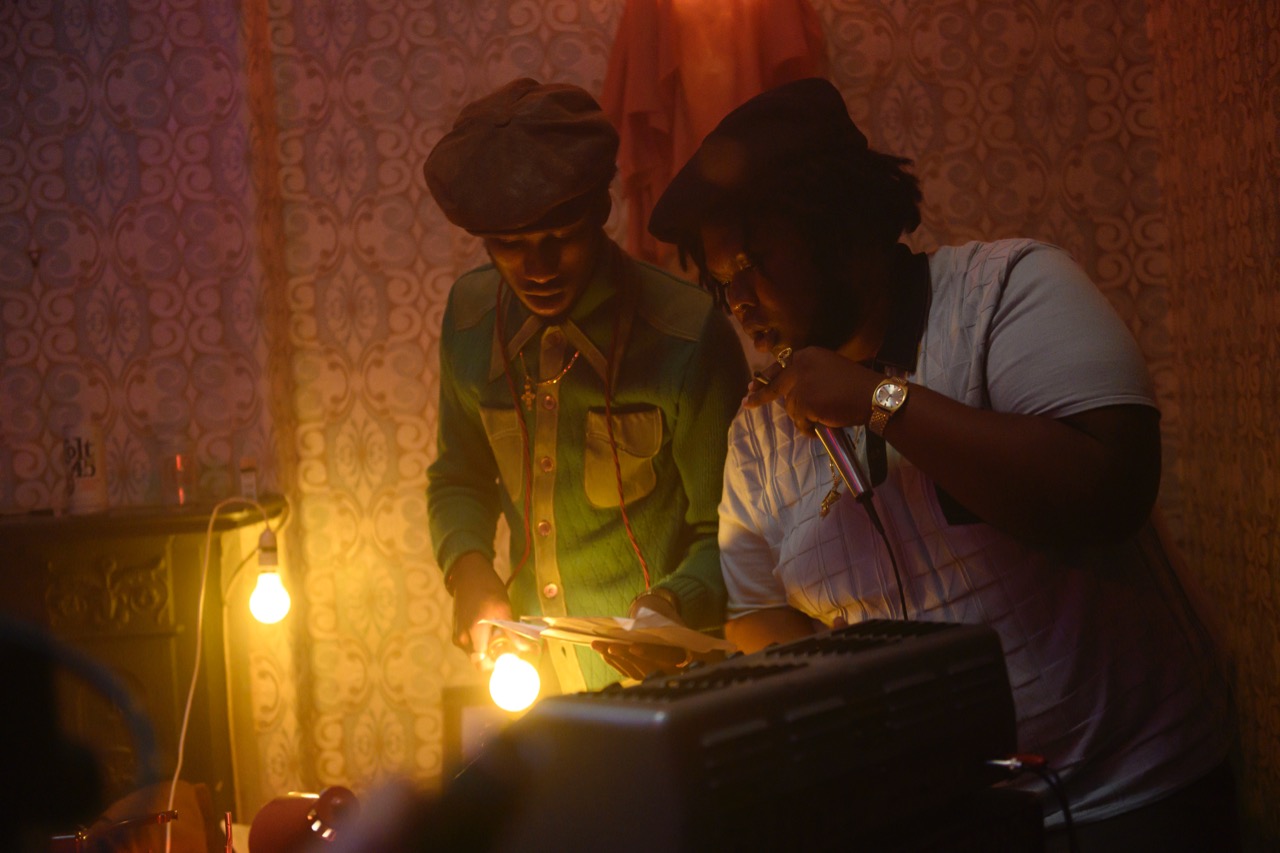
Alexander James-Blake as Parker B. and Kadeem Ramsay as Samson in Lovers Rock. Photo: Parisa Taghizedeh / Amazon Prime Video.
These self-organized “blues parties” were often demonized as vice warrens. Too much ganja and loud music. Too many black people. For McQueen, they’re DIY diasporas, sites of experimental architecture where outlaw youths jerry-rig terraced homes into mini-Tardises, engineering sound systems that produce pulsating basslines to transport listeners—for a night (oh what a night)—out of Babylon.
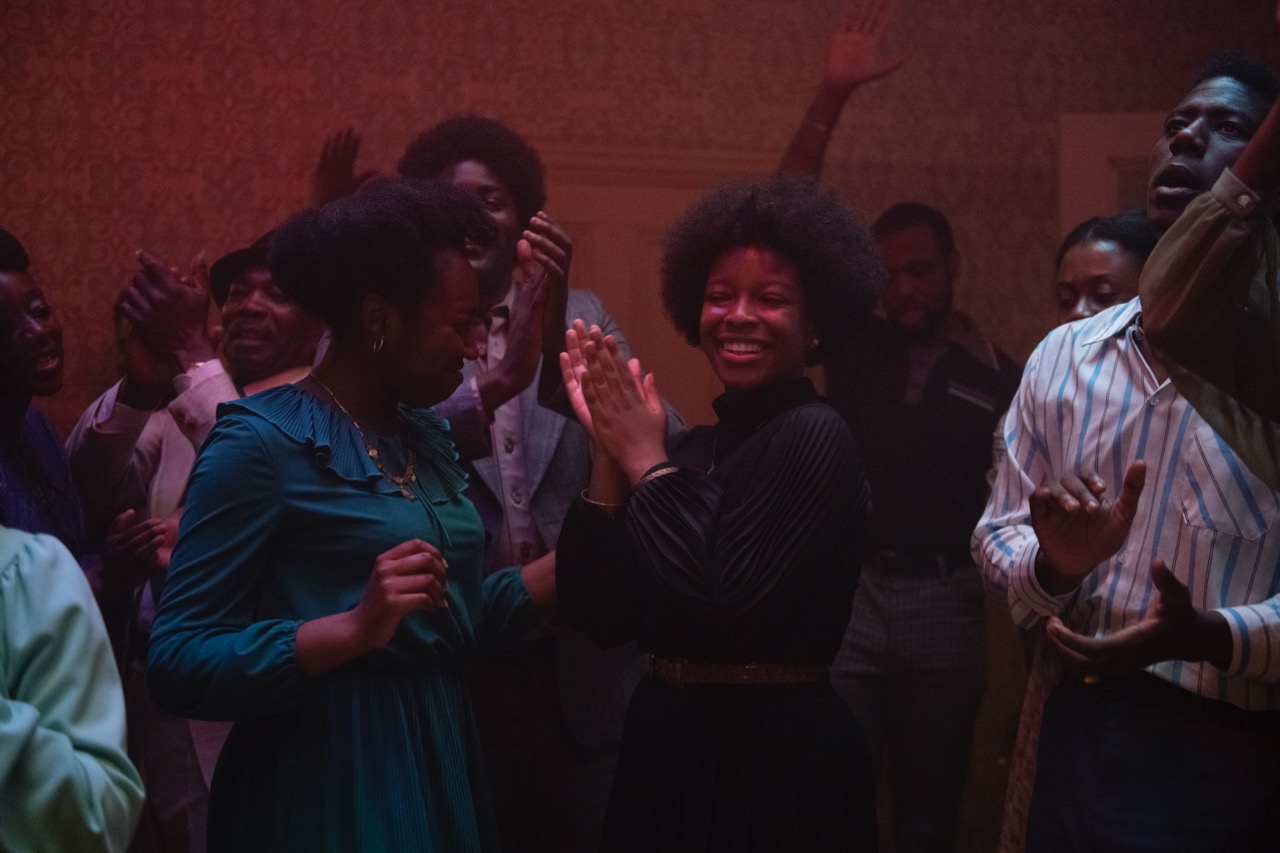
Cast of Lovers Rock. Photo: Parisa Taghizedeh / Amazon Prime Video.
At the heart of Lovers Rock are two extraordinary, unforgettable music scenes. The first shows the living room smelting to Janet Kay’s “Silly Games.” Time slows down. The walls start to sweat. Women close their eyes in secret rapture. Couples move closer to each other. Hands are draped across necks and waists. Glances and communion. Melody and mystery. The song subsides but the dancers can’t let go. They start singing, a cappella, Kay’s transcendent high notes becoming spiritualist murmuration, a gospel keening. Look closely: in the background, also singing along, is “Silly Games” writer Dennis Bovell. He’s sixty-seven now; in 1974, when he was just twenty-one, he, not unlike the characters in Mangrove, was in prison for six months on a trumped-up charge of “causing an affray.”
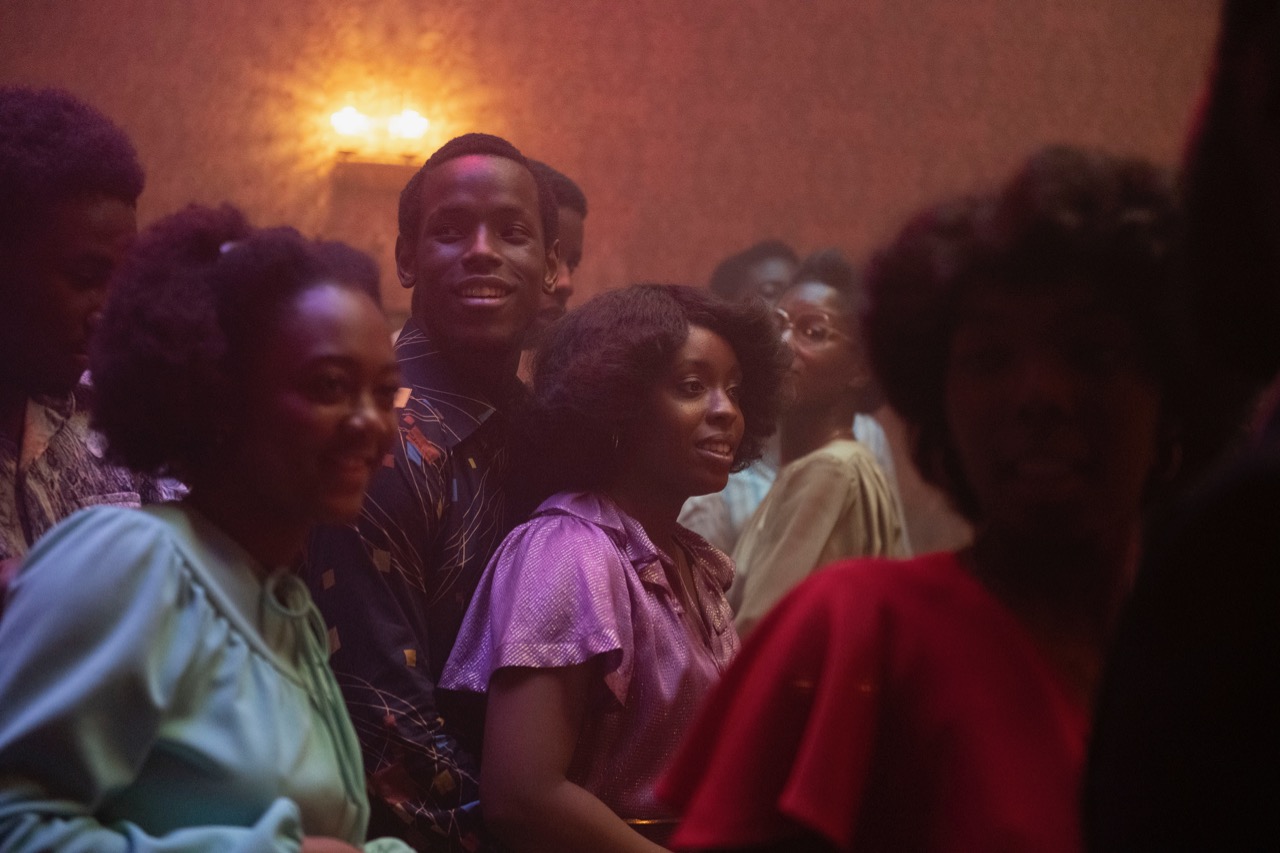
Micheal Ward as Franklyn (center left) and Amarah-Jae St. Aubyn as Martha (purple dress) in Lovers Rock. Photo: Parisa Taghizedeh / Amazon Prime Video.
Soon there’s another tune: “Kunta Kinte” by the Revolutionaries. It’s killer dub. Seven Samurai meets Gunfight at the O.K. Corral. The men form a fraggle circle. Some are hyper, on edge. To hell with shit work and suffering! They rip off their shirts, release their dreadlocks, shake and roar like conquering lions. “Murdah!” is the cry. Exhalation and exorcism. Corporeal and yet out of body. A hypnotizing ritual announcing a state of emergence and emergency. And sirens: Is it the music—or the local cops staging a raid? Is one of the dancers having a seizure? Deeper and deeper. Rewind!
The frenzy here has echoes of Girls, Tricky (2001), McQueen’s film about Bristol-born rapper Tricky. There are also fleeting appearances in Lovers Rock by a voiceless, cross-carrying gentleman; they bring to mind the director’s sixty-five-second short Exodus (1992/97), in which two mysterious seniors move around a crowded London carrying coconut palms. Whether in his poised framing, his run-on scenes, or his fondness for close-ups of brooding blackness, McQueen, working with cinematographer Shabier Kirchner, hasn’t entirely abandoned his artist-film past.
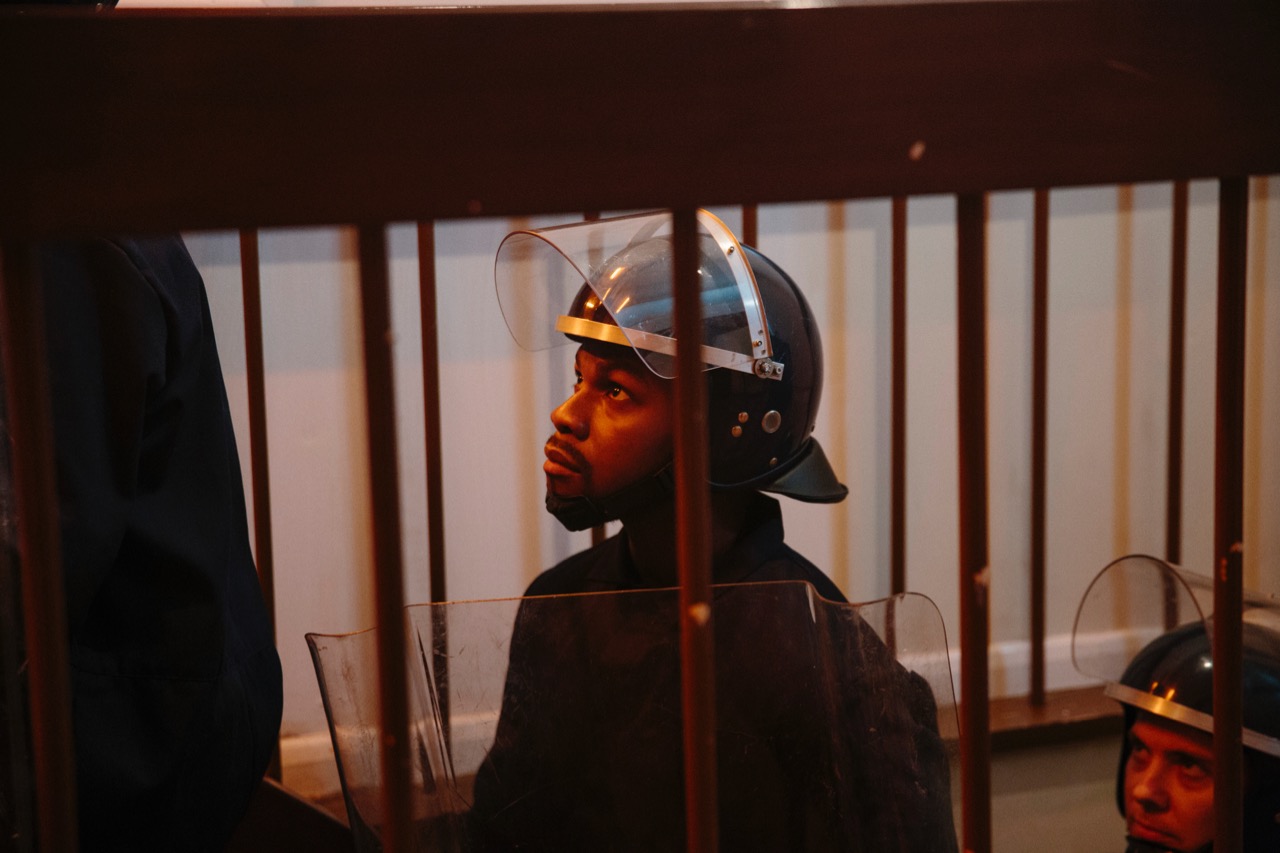
John Boyega as Leroy Logan in Red, White and Blue. Photo Credit: Will Robson-Scott / Amazon Prime Video.
The other three installments of Small Axe—Red, White and Blue (starring John Boyega and based on the true story of a black trainee police officer whose father was violently assaulted by the cops), Alex Wheatle (about the black British writer who wound up in prison after the 1981 Brixton riot), and Education (about those ghastly ESN schools)—are equally fraught. Each examines the stress fractures caused by living in a state of permanent besiegement. Each chronicles damage and defiance. And each is a loving tribute to a plangent phase in British Caribbean culture—its textures and grace notes, its resistance through rhythm, its tenderness under fire.
Sukhdev Sandhu directs the Colloquium for Unpopular Culture at New York University. A former Critic of the Year at the British Press Awards, he writes for the Guardian, makes radio documentaries for the BBC, and runs the Texte and Töne publishing imprint.